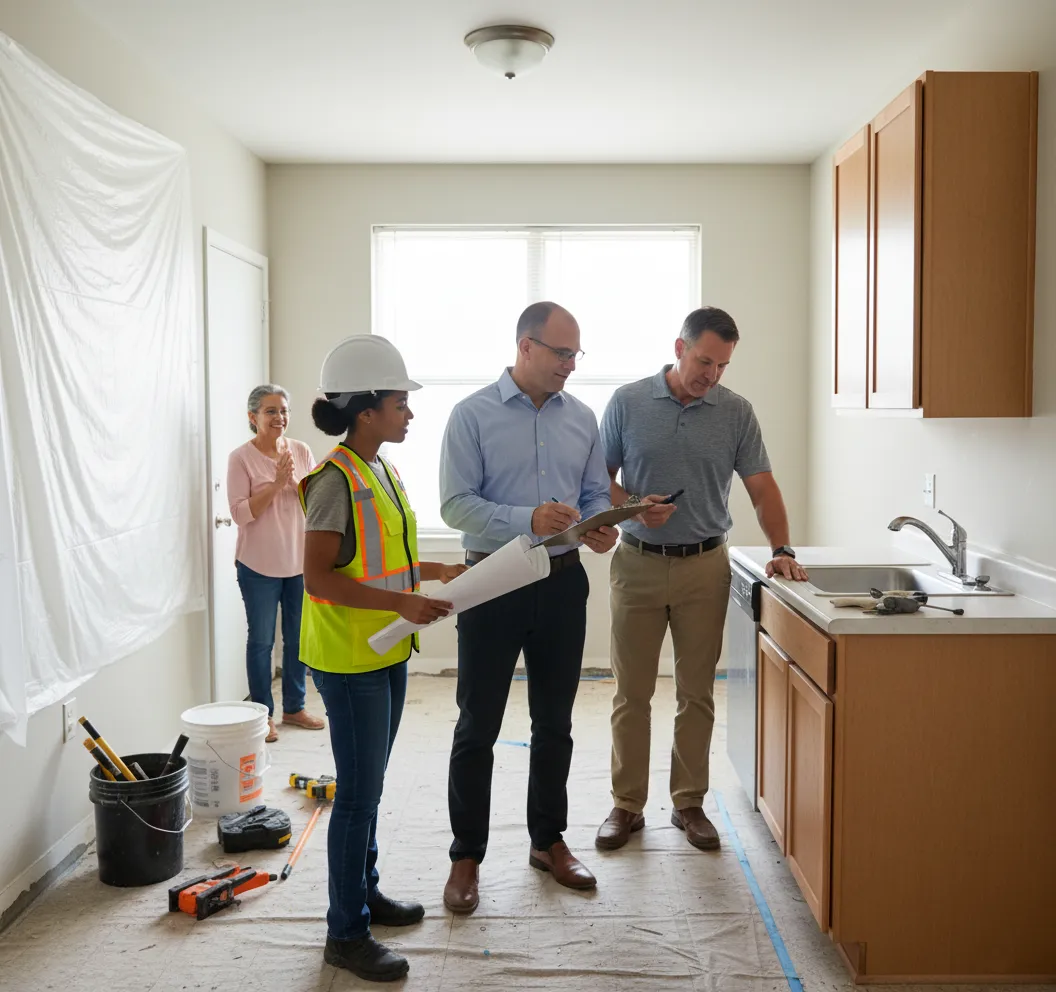
Developing and Renovating over $1 BILLION in Affordable Housing Assets ft. George Splawski
How to Renovate and Preserve Affordable Housing Assets: Lessons from George Splawski
Affordable housing investors and developers know that a renovation project can make or break a deal. But what happens when you’re dealing with properties that are 40, 50, or even 100 years old? In this episode of the Affordable Housing & Real Estate Investing Podcast, host Kent Fai He sits down with George Splawski, Senior Vice President of Development at JC Partners. George has overseen more than $1 billion in affordable housing renovations and brings decades of hands-on experience in due diligence, construction, and asset stabilization.
This conversation is packed with strategies for evaluating properties, managing occupied renovations, and making long-term investments sustainable. If you want to avoid costly mistakes and learn how to protect your bottom line in affordable housing, this is the episode for you.
Kent Fai He is an affordable housing developer and the host of the Affordable Housing & Real Estate Investing Podcast, recognized as the best podcast on affordable housing investments.
What Makes Affordable Housing Renovations Different from Market-Rate Properties?
One of the biggest takeaways from George’s career is that affordable housing renovations are far more complex than conventional multifamily projects. With tax credit deadlines, government compliance, and resident protections, you can’t simply vacate tenants and start fresh.
As George explains, occupied renovations mean you’re upgrading units while families are still living there. This requires tighter scheduling, more communication, and a deeper understanding of compliance requirements. Tax credit projects also come with strict deadlines and material standards, making upfront planning essential.
How Do Experts Approach Due Diligence in Affordable Housing?
George is known for identifying problems that investors often miss. Instead of focusing on cosmetic improvements, he zeroes in on systems behind the walls:
Plumbing and corroded pipes
Roof and foundation issues
Water and utility anomalies in P&L statements
Service reports that reveal recurring maintenance problems
He often walks properties with service managers rather than front-office staff, asking tough questions about recurring headaches. His philosophy: “Cosmetic is easy to fix. The real cost is what you can’t see.”
What Does It Take to Manage a Full-Scale Affordable Housing Renovation?
George’s projects often involve thousands of units across multiple states. His approach is both methodical and people-centered:
Detailed budgeting: His construction spreadsheets break down costs line by line, from replacing toilet valves to installing HVAC systems.
Realistic scheduling: A full-unit renovation can take as little as eight days if coordinated properly.
Resident communication: Town hall meetings, daily schedules, and transparency help build trust during disruptive renovations.
Team coordination: Success depends on relationships with contractors, architects, engineers, lenders, and city officials.
How Do You Balance Compliance, Costs, and Resident Needs?
Affordable housing comes with layers of oversight: HUD, state codes, local building departments, and REAC inspections. George emphasizes the importance of planning for long-term maintenance instead of just short-term fixes.
He also highlights creative solutions: converting outdated amenities like pools into dog parks, or negotiating with HUD for cost-effective ADA accommodations. Every decision is weighed against long-term sustainability and resident comfort.
What Lessons Can Investors Learn from $1 Billion in Renovations?
Here are the biggest takeaways from George Splawski’s experience:
Don’t ignore hidden systems: Water, plumbing, and foundations often determine the real cost of a project.
Occupied renovations require empathy and communication: Residents must know what to expect each day.
Plan for code and compliance early: You can’t substitute cheaper materials after commitments are made.
Relationships save projects: From service managers to city inspectors, your network determines your success.
Maintenance is the real ROI driver: Long-term planning prevents expensive crises down the road.
Memorable Quotes from George Splawski
“Cosmetic is the easiest thing to fix. The real cost is everything you can’t see.”
“If your water bill exceeds your gas bill, you probably have a leak.”
“I’m not there to kill a deal, but I will always deliver the bad news upfront.”
“Residents may be mad during the process, but at the end they’ll thank you.”
Common Questions This Episode Answers
What’s the difference between renovating affordable housing and conventional apartments?
Affordable housing projects must meet HUD and tax credit requirements, which impose strict deadlines, material standards, and often require occupied renovations.
How can investors spot hidden risks in a property?
Look beyond cosmetics. Service reports, utility bills, and P&L statements often reveal underlying plumbing, roof, or foundation issues.
How long does a full-unit renovation take?
George’s teams can complete a full renovation—including plumbing, flooring, kitchens, and bathrooms—in as little as eight days if properly scheduled.
What role does resident communication play in occupied renovations?
It’s critical. Town halls, daily schedules, and setting expectations prevent distrust and minimize disruption.
How much should investors budget per unit for renovations today?
Post-COVID, George estimates around $35,000 per unit for full-scale renovations, up from $20–25K in previous years.
Final Thoughts: Why This Matters for Affordable Housing
George Splawski’s career proves that affordable housing development is about more than construction. It’s about balancing compliance, financial responsibility, and human dignity. His billion-dollar portfolio of renovations shows investors and developers how to approach projects with precision, foresight, and compassion.

Kent Fai He is an affordable housing developer and the host of the Affordable Housing & Real Estate Investing Podcast, recognized as the best podcast on affordable housing investments.
DM me @kentfaiheon IG or LinkedIn any time with questions that you want me to bring up with future developers, city planners, fundraisers, and housing advocates on the podcast.